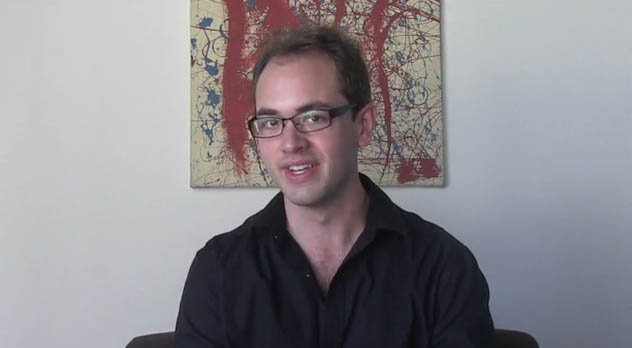
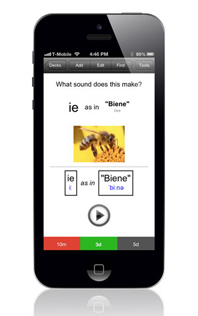
L’altro giorno, Gabriel Wyner contacted la studentessa matta to share notizia about his new brainchild called Fluent Forever: Foreign Language Pronunciation Trainers. It is an ambitious and fascinating project that is currently being funded through Kickstarter, a website where anyone can help new projects get off the ground through small or large donations. After reviewing his videos and the information he has on the Kickstarter site I was immediately intrigued. Mi sono incuriosita e volevo sapere più. Quindi ho chiesto Gabe di darmi più informazione. I wanted to know more I asked Gabe to fill me in on the details. Here is what I learned from my interview with him.
Studentessa matta: Ciao Gabe! I’m always looking for the next thing that will move me closer to fluency. For the most part, I have self-taught myself the Italian language. When I began my language journey I concentrated all my efforts on grammar and memorizing words. At first, I was afraid to open my mouth and speak the language. Because many of the vowel and letter combinations were so unfamiliar I didn’t want to sound like a complete idiot. As I built up confidence, of course, that all changed! But as a result, I think I skipped a really important step in the “apprendimento della lingua” – that of thoroughly learning Italian pronunciation correctly. To this day there are still words that trip me up. Like tovaglia / table cloth and tovagliolo / napkin! All those dipthongs and tripthongs can get a little tricky! So lately, I am going back to basics and really focusing on removing my “American accent” and perfecting my Italian pronunciation skills. Infatti I am working with an Italian singer to work on diction and pronunciation.
When I read about your project I was immediately interested because you are focusing on modules that you are calling “Pronunciation Trainers” that are designed to help you acquire and retain sounds in your target language. I think it is something that could be very useful to all language learners. Let’s get started! Here are some questions I have for you!
Matta: What has been your experience with traditional language learning methods?
Gabe: Terrible! I took 7 years of Hebrew school as a little kid and 5.5 years of Russian in high school. I had a fun time and good teachers, and I did a fine job of learning the alphabets of both languages, but in terms of vocabulary retention and any real sense of being able to talk, I really didn’t have much to show for either language.
Matta: Where did the idea for these trainers come from?
Gabe: While I was writing my book, my editor asked me “What can you actually do to learn pronunciation? Just listen to words? Go to YouTube?”
I realized that I had an answer for him – there was research showing exactly what you can do – but the resources just didn’t exist. As an experiment, I decided to use Hungarian as a test case and create a pronunciation trainer for it. It took me around 10 days to get all the sounds into my ears at 20 minutes a day. It was one of the fastest learning experiences I’ve ever had, and I remember thinking “Ok. This is stupid. Why doesn’t this exist in every language?”
Then I started planning out the Kickstarter campaign for Fluent Forever: Foreign Language Pronunciation Trainers. (check out The informational video in which Gabe explains his project.
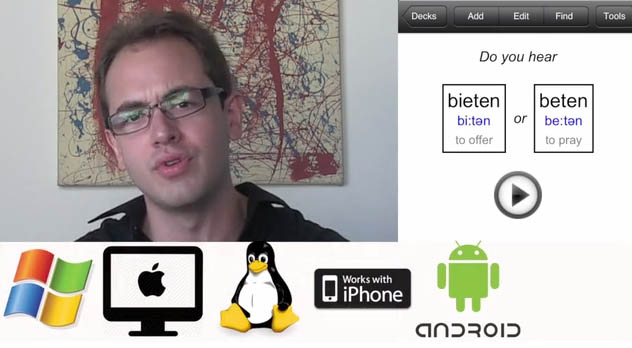
Matta: What makes pronunciation so important to you?
Gabe: A lot of things. Without proper pronunciation, you can’t really connect to people when you talk; they generally simplify how they’re speaking or switch to English. It’s frustrating as a learner. But beyond that, if you don’t have the sounds of a language in your ears, you’re at a constant disadvantage when you’re trying to memorize words. Did he say fatto or fato? Lo or l’ho? Cognato or coniato? If you can’t hear those differences, then you’re stuck trying to memorize abstract facts, like “this word has two Ts” or “this word is spelled with a GN,” instead of actually hearing it.
Matta: Gabriel you have studied and performed opera, (Check out Gabriel’s Kickstarter video!) so I think you already have an advantage. I think proper pronunciation in any language has a great deal to do with how you breathe and how you are trained to hold or move your mouth correctly to pronounce the proper sounds. In English, we tend to “swallow” our words. In Italian, the words are pronounced more in the front of the mouth. This alone makes a big difference in sounding like a native speaker. Do you address this in your language trainers?
Gabe: The first, necessary step towards figuring out how to pronounce something correctly is to hear it accurately. Even if someone tells you “Italian is in the front of the mouth,” that’s not going to stick until you really know what that means in your ear. Singers generally work with language coaches until they can actually hear the sounds. Once they do that, then they’re ready to take in instructions like “put that in the front of the mouth.” These trainers do a wonderful job of training the ears to hear new sounds, and fortunately, because the Kickstarter is doing so well, I’ll have the budget to produce a full series of pronunciation videos on each language, so you’ll get your “Put it in the front of the mouth”- instructions, too.
Matta: What’s been your current experience using these new Pronunciation Trainers that you are now developing?
Gabe: As I talked about a little earlier, it took me roughly 10 days to get a handle on the Hungarian sounds in my ears. Then, as I continued to learn more vocabulary (which I learn using audio clips from Forvo.com), my ears got better and better, and my mouth followed suit. A few months in, I read my mother one of my Hungarian essays. She grew up hearing Hungarian at home, but never spoke it herself. She was blown away by my accent; it sounded just like her parents. And I’ve had that confirmed by a native Hungarian speaker from my website. These trainers really do a great job, and I’m really excited to actually use them next year to help me learn Japanese.
Matta: Listening to your video you claim that you have learned a couple of languages is just a few months! This is pretty incredible. Now, being a passionate studentessa of the Italian language and someone who has been honing my ability to speak the language for more than 10 years, I am a bit skeptical that someone can actually learn a foreign language in such a short period of time. Is it really possible to learn and fully appreciate all the nuances, idioms, grammar constructions and store all those new words in your brain in such a short time and still have the ability and capacity to recall them easily and effortlessly?
Gabe: Whenever you talk about being able to “speak a foreign language,” you generally run into the term “Fluency.” It’s a really problematic term because it’s so loosely defined, and yet we all have a sense of what it means – it’s this feeling of effortlessness, where you’re not constantly scrambling for vocabulary and making grammar mistakes.
I tend to avoid it when I can. I much prefer the CEFR ranking levels, because they’re testable, and because I have some experience with doing those tests, then showing up in a foreign country and seeing how it feels to have attained a certain level. As an example, I showed up in Austria with a C1 proficiency certificate. Theoretically, this is a fluency certificate; I could move to Germany and work in any job I wanted using that certificate. In practice, I could speak German comfortably in a classroom setting, where the language is a little dumbed down, but when I showed up in Austria, there was definitely a bit of a learning curve, as I adjusted to the faster rate of speed and dialectical differences of the region. Still, it wasn’t much of a leap, and I was fairly comfy taking music history classes in German within a few weeks. Occasionally, I’d run out of vocabulary in some settings – a pharmacy or car rental place, for instance – but I knew enough to navigate around the holes in my vocabulary and get by just fine. If I wanted to, I could have continued studying German for years, and pick up more and more vocabulary, grammatical subtleties, and idioms. There’s almost no end to what you can study in a language. But for my needs, I was as fluent as I wanted to be.
Using the methods in my book, I got my French up to B1 or B2 fluency within 3 months, and up to C1 fluency after 2 months of immersion. Just like in German, there were holes in my vocabulary, but I could manage most conversations just fine, and again, if I was missing something, I could navigate around the holes and get by. It’s the kind of French knowledge that would let me move to France and adjust to speaking exclusively in French after just a few weeks. Russian was a similar experience, though it’s a harder language. It took me 8 months of self-study and 2 months of immersion to hit B2/C1 fluency.
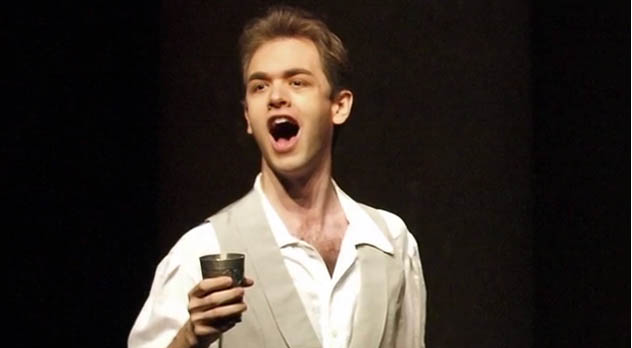
Matta: Is this a program that should be paired with more traditional language learning methods?
Gabe: I appreciate language classes; as long as they’re primarily held in the target language, they’re like a walking, talking grammar book, and I use them as such. In my book, I talk about how to convert language input (grammar books, dictionary entries, and the stuff you cover in language classes) into something you can actually retain, using a Spaced Repetition System (basically, computerized flashcards on steroids). This turns out to be a fabulous way to take advantage of traditional language classes, where you get the same input as everyone else in the class, but you don’t forget any of it.
Matta: How effective is the program? What other things do you combine with the Language Trainers to become fluent in 4 or 8 weeks?
Gabe: I don’t think it’s possible to become fluent in a language in 4-8 weeks. But that’s not to say that speedy language learning isn’t possible. Generally, I think you can really get a handle on many languages in ~3 months of full immersion. The issue is that most people don’t have the time or money to devote 100% of their day to speak in a foreign language.
So when we’re talking about “effectiveness,” I don’t really aim for speed so much as efficiency. With these Trainers and with my book, I’m talking something that’s a lot more portable than immersion – something you can jam into a spare 30-minute chunk of your day, rather than an 8-hour stretch – and something that sticks better, so you can study for a short period, but actually retain what you’ve learned each time. I’m currently studying Hungarian as slowly as I can; I’m practicing for maybe 20 minutes a day, missing days, etc. Basically, I’m seeing what it’s like to learn a language the way most of my readers will; within the demands of a busy life, where you don’t always have the time or willpower to study. And what I’m finding is that it’s working just as well as my experiences in French and Russian. Granted, I’m improving slower than I did in French (where I studied 1+ hours every day) or Russian (~45 minutes/day), I keep improving. I’m not forgetting what I’ve learned. Overall, I’ve been really happy with the program’s effectiveness.
Matta: Is it a program that should be used just for beginners, or do you think it could benefit advanced learners of the language as well?
Gabe: The pronunciation trainers themselves will benefit all levels. There’s going to be a fair bit of content geared towards beginners (basic spelling rules and simple example words), but there’s also going to be a lot of really subtle ear training: for French, I’ll start by training users to differentiate between some simple word pairs – things like sous and su – but then I’ll move on to word pairs that cross between French and English: sous (French) vs Sue (English) and bande (French) vs bond (English). These kinds of word pairs let you really fine-tune your ear. I’m looking forward to using some of these myself to really polish my accent in my own languages.
As for the book, that’s written for learners of all levels. It’ll take a beginner up to fluency, and it’ll show an advanced learner how to add subtlety and nuance to their language in as efficient a manner as possible.
Matta: What have been some of your biggest road blocks to creating these Language Learners?
Gabe: The pronunciation trainers are going to take an extraordinary amount of work (and money) to produce. There is just so much research to do, so many words to record, so much data to input. Multiply that by 11 languages, and you have something that no one can do without some help. I really needed the Kickstarter to let me devote all of my time to this project and to help me afford to outsource everything I can outsource. I’m really happy that it’s going so well.
Matta: Where did you find the technical expertise or the people to help you create these modules? Who is your team?
Gabe: Practice! These trainers are going to be designed in Anki – my favorite Spaced Repetition System, designed by Damien Elmes. I’ve probably created 25,000 flashcards in Anki over my last few languages, and so I know that program like the back of my hand. When I first saw the research on ear training in a foreign language, one of my first thoughts was “Hm! I bet I could make this in Anki!” As it turns it, I could.
I’ve had some readers suggest that I create a new program instead of relying on Damien’s, but Anki has been out for years, runs on every computer OS and smartphone, and works great. Designing new software would add a huge expense to all of the backers and delay the project; I’d rather stick with what works and deliver faster.
Matta: What format will these trainers be available in?
Gabe: As mentioned above, I’ll be delivering the trainers as Anki flashcard decks. You can get all the details about Anki over at ankisrs.net.
Matta: What are your ultimate goals? Where do you go from here once the Fluent Forever Learning modules are completed? What future projects are you dreaming about?
Gabe: I can barely see that far ahead over all the work I need to do on these trainers. That being said, I do have a few projects in mind: I love teaching language workshops, and as the book reaches publication, I suspect I’ll have a much wider range of interested students for workshops. In addition, I’ve had a lot of requests for pronunciation trainers in additional languages, which may be my focus for a while. But realistically, my next 8 months will be devoted exclusively to developing these trainers, and after that, I’ll be running around the country on some crazy book tour. Who knows what will happen after that?
Matta: Are you still singing opera?
Gabe: I’m not! There’s just not enough time, and over the course of working on the book, I accidentally fell in love with the art of writing. Even in non-fiction, it’s just as expressive an art form as opera. I got kind of hooked. So for the time being, I’m doing everything I can to ensure that the book has a wide readership. If it succeeds, I get to write new books in the future!
Gabriel Wyner is the author of Fluent Forever (Harmony/Random House, August 2014) and the Fluent Forever blog.
Note from Gabe: If you check out the Kickstarter and think it could be of use to you or your friends, please do help spread the word. We have until Jan 2 to reach $45k for our 4th stretch goal – 90 original illustrations for a side project I’ve been working on for months, The Most Awesome Word List You Have Ever Seen. To share with your social network, use these handy links: Share via Facebook | Twitter | Google+
Thanks Gabe for a great interview! I think you are on to something and I look forward to seeing you succeed! In bocca al lupo! I have contributed to your project and I hope some of you will too! A presto!
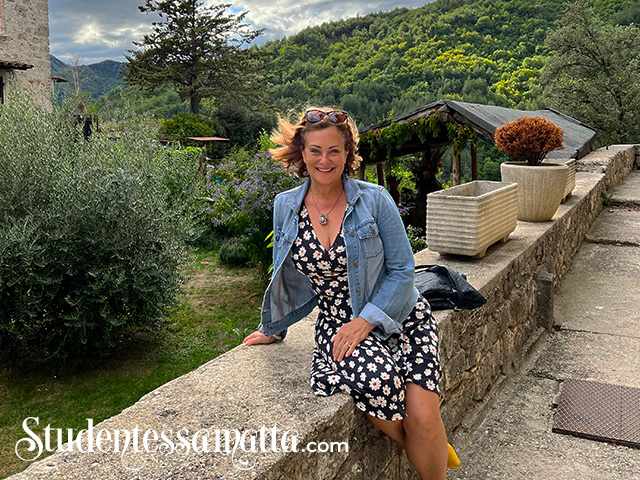
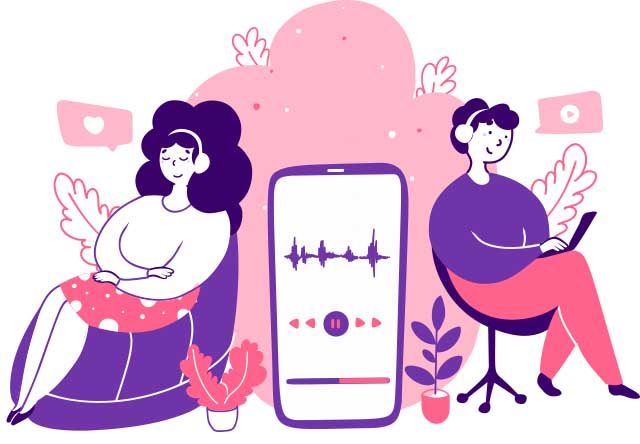
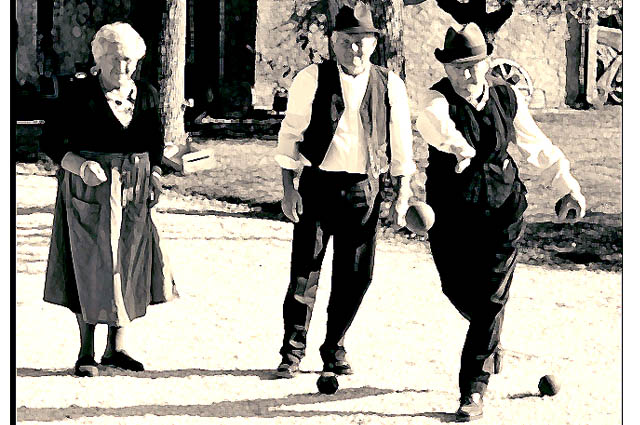
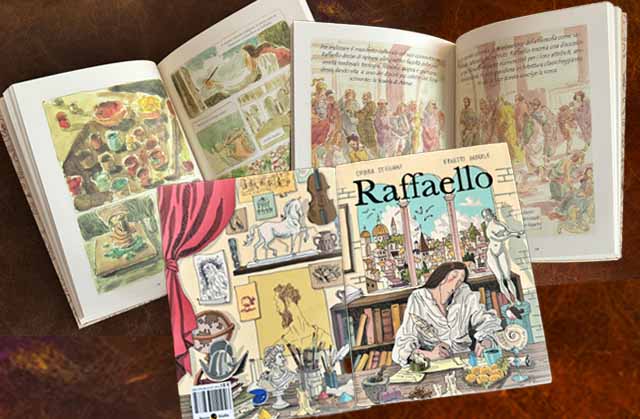
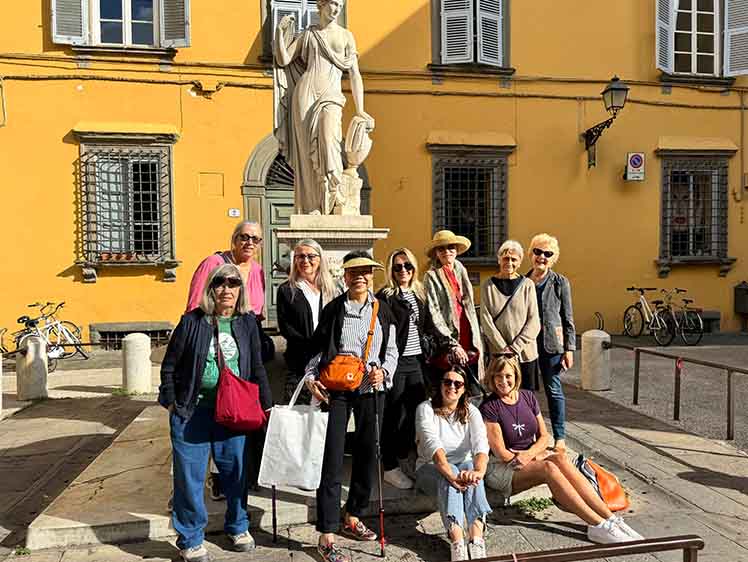






What a fascinating project! Training one’s ear is crucial in music and language so I hope Gabriel has unlocked the mysteries for us “tin ear” folks. I don’t exactly have a tin ear, but I wish it was much better because I struggle to hear the difference between open and closed vowels, for example. I know I even pronounce some English words poorly (“forgit” v. forget). The examples he gave in his video just flew past my ears! While learning your “first” second language is much harder at an older age I won’t hold Gabriel’s youth and obvious natural language prowess against him. 😉 I’ve backed Fluent Forever and can’t wait for the Italian Trainer. In bocca al lupo a me, a te, a tutti!
My son has a teen-age Spanish exchange student (Ava) living in his house.
His 15 and 14 son and daughter are learning Spanish and Ava is learning English.
I am interested in your proposed iPhone apps for Spanish and English.
I believe that your pronunciation guide to language learning is a clever approach.
I would also like to see some references to the research that supports this methodology.
University of Nebraska at Omaha
University Library dean emeritus
2130 South 80th Ave.
Omaha, NE 68124
402-393-3320
Ciao Robert! That’s great that your family is hosting an exchange student. We did that about 3 years ago with a young girl from Locorotondo in Puglia Italy. To learn more about Gabe’s apps and his method I suggest that you visit his site to get more details directly from him. I met him last February while attending his 2-day language seminar in San Francisco. You can visit his site at: http://fluent-forever.com/
A presto! Melissa
Such an interesting project!